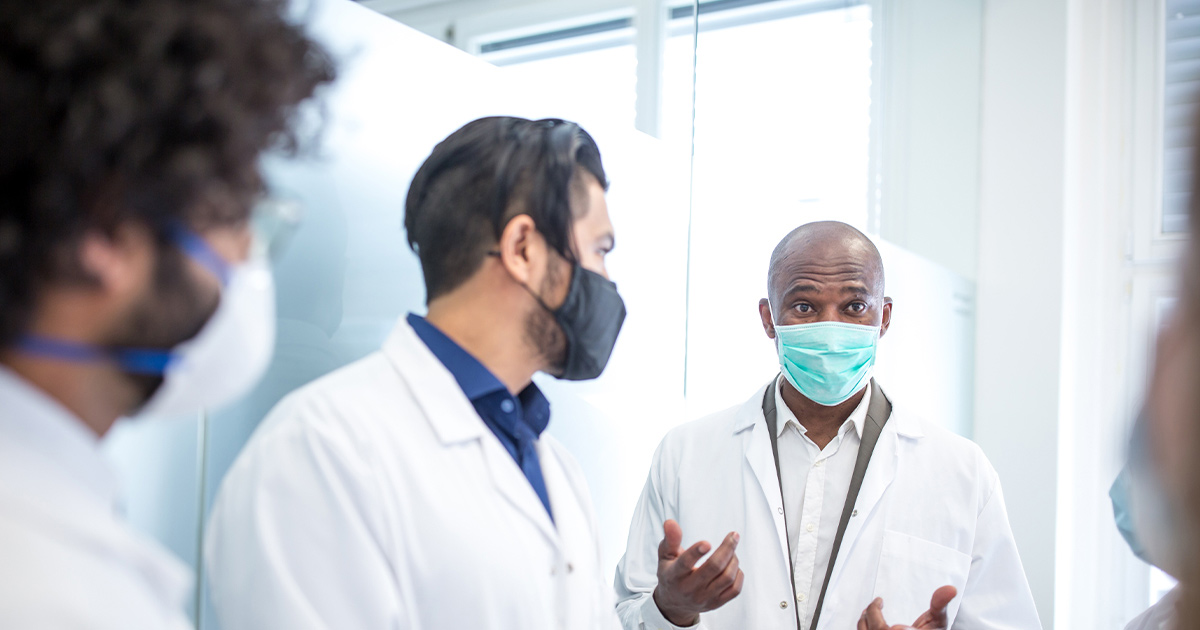Gastroenterology
Part of Tri-Valley

Leaders in Gastroenterology Treatments
At Stanford Health Care Tri-Valley, you have access to advanced diagnostics and expert treatment from gastroenterologists and hepatologists (liver specialists) with expertise in common, complex, and rare conditions. We provide convenient local care, including minimally invasive procedures, with access to the latest innovations and research.
What We Offer You for Gastroenterology Care
- Specialized expertise in diagnosing and treating digestive tract disorders. Go to Conditions Treated
- Team-based approach from experienced gastroenterologists, hepatologists, registered dietitians, and colorectal surgeons to tailor care to your needs. Go to Your Care Team
- Ease of access to care from community gastroenterologists near you, with peace of mind knowing that your team can draw on leading research and innovations. Go to Accessing Care
Our specialists in gastroenterology and hepatology diagnose conditions affecting the digestive tract, including the esophagus, stomach, small intestine, colon, pancreas, gallbladder, and liver. You can also have screening for colon cancer, including colonoscopies, on-site.
Our gastroenterologists include Stanford Medicine faculty who provide care in Pleasanton, in addition to specialty-trained physicians who practice in the community. Our gastroenterologists deliver comprehensive, multispecialty care and treatments for conditions and symptoms including:
Find caring, comprehensive diagnosis and treatment for uncomfortable digestive issues from gastroenterologists near you.
General gastroenterology
- Barrett’s esophagus: Damage to the esophagus, usually from repeated reflux (return of stomach acid), that can develop into cancer
- Gastroesophageal reflux disease (GERD): Condition in which stomach contents flow backward into the esophagus
- Motility disorders, including gastroparesis: Problems with how food, liquid, and waste move through your digestive system
- Indigestion (dyspepsia)
- Peptic ulcer disease: Painful sores in the lining of the digestive tract, commonly due to H. pylori bacteria or anti-inflammatory pain medications
- Gastrointestinal bleeding
- Constipation
- Diarrhea
- Gastroparesis
- Small intestinal bacterial overgrowth (SIBO): Abnormal increase of bacteria in the small intestine, particularly bacteria from other parts of the gut, causing diarrhea and pain
- Inflammatory Bowel Disease; Crohn's disease and Ulcerative colitis
- Colon cancer: Cancerous cell changes in the colon
- Colorectal polyps: Growths in the colon that may or may not be cancerous
Liver diseases and disorders
- Cirrhosis: Also called liver cirrhosis or hepatic cirrhosis, is the development of significant scar tissue within the liver that can affect liver function. It can be caused by many different conditions
- Nonalcoholic fatty liver disease- Inflammation and damage within the liver due to the presence of fat
- Alcoholic liver disease-Inflammation and damage of the liver related to excessive alcohol use
- Viral hepatitis is inflammation and damage of the liver due to infections which can be treated with medications. These viruses include hepatitis
A, B and C. - Autoimmune Conditions: These conditions occur when the body's immune system fights against the liver. They include liver disease such as primary biliary cholangitis (previously known as primary biliary cirrhosis), autoimmune hepatitis and primary sclerosing cholangitis
- Metabolic Liver Disease: These occur when there are genetic disorders that lead to abnormalities in liver function. Conditions include hemochromatosis, Wilson disease and Alpha1 antitrypsin deficiency
- Jaundice: Yellow-tinted skin and eyes when the liver can’t efficiently process red blood cells as they break down
Gallbladder and pancreas disorders
- Benign biliary disease: Noncancerous disorders of the bile ducts, small tubes that connect the liver to the small intestine
- Gallbladder disorders: Problems with the gallbladder, a small organ that stores bile, a substance that aids digestion
- Gallstones: Hardened deposits of bile in the gallbladder that can cause pain and inflammation
- Pancreatic cysts: Pockets of fluid on the pancreas, an organ behind your stomach that produces enzymes to help digest food
- Pancreatitis: Inflammation of the pancreas, which can be painful
- Primary sclerosing cholangitis: Disease resulting in fibrosis (hardening) and inflammation in bile ducts, which can lead to cirrhosis
Gastroenterology Treatments
Our highly trained gastroenterologists provide a thorough evaluation and diagnosis, using advanced tools and techniques. Then we discuss the results and make a treatment plan customized to your needs. We begin with the least-invasive options that are likely to relieve your symptoms.
Innovation Highlight
At Stanford Health Care Tri-Valley, we’re increasingly moving from inpatient to outpatient care. Today, you can often receive care and safely go home the same day after a procedure in our Ambulatory Surgery Center (ASC). At the ASC, you’ll find leading-edge equipment, highly skilled staff, and pain management techniques to keep you safer and comfortable.
Diagnostics
Our gastroenterologists can select from a variety of diagnostic tools to understand what’s causing uncomfortable symptoms. We explain the procedure and any alternatives throughout the testing process.
Gastroenterology procedures
- Endoscopy: Using an endoscope (thin, flexible tube with a light and camera), your doctor can view your esophagus, intestines, or colon
- Capsule endoscopy (SmartPill®): Capsule you swallow that takes pictures and measures pressure throughout your GI tract to help find the cause of bleeding or disease
- Colonoscopy/colon cancer screening: Procedure to examine the large intestine (colon and rectum) for signs of colon polyps, colorectal cancer, or other conditions
- Single balloon enteroscopy: Use of a scope with an inflatable balloon to view inside your small intestine
- ERCP (endoscopic retrograde cholangiopancreatography): Procedure that allows your doctor to diagnose and treat problems in the bile ducts and pancreas
- Endoscopic ultrasound: Technique that uses sound waves to create images of wall of the gastrointestinal tract and other organs outside the gastrointestinal
- Esophagogastroduodenoscopy (EGD): Also called upper GI endoscopy, a procedure that allows your doctor to examine your esophagus, stomach, and first part of the small intestine (duodenum)
- 24-hour esophageal impedance pH: Test using a tiny catheter in your esophagus to measure acid and other levels over a 24-hour period
- Esophageal pH: Wireless capsule temporarily placed in your esophagus to record acid levels during your regular activities to help diagnose the cause of reflux
- Paracentesis: An abdominal tap using a needle to remove fluid from between the spine and abdominal (belly) wall to relieve discomfort or send for testing
Imaging
- Abdominal X-ray
- Barium enema: X-ray with a contrast solution to check the large intestine for blockages, Crohn’s disease, or colorectal cancer
- Computed tomography (CT) scan
- Magnetic resonance imaging (MRI)
- MR enterography (MRE): MRI test using a contrast dye to capture images of your small intestine to spot problems or evaluate a treatment
- Transit study: Imaging test to measure how quickly food moves through your stomach, intestines, or colon
- Ultrasound
- Upper GI and small bowel series: X-rays taken of your stomach and intestines after you drink a barium solution that highlights details on the images
Functional studies
- Gastric emptying: Test that measures how quickly food and liquids flow through your stomach
- Manometry: Measures patterns of pressure in your esophagus, stomach, and intestines to locate the source of GI motility problems
All Treatments
We offer comprehensive care for many GI disorders, teaming with our hepatologists (liver specialists) as needed. Our goal is to help relieve uncomfortable symptoms and improve your health by providing the care and treatment best suited to you. Your care plan may involve one or a combination of the following therapies:
Diet
- Dietary changes: Diet or lifestyle changes to reduce symptoms or help your digestive tract heal
- Low FODMAP diet: Eating plan that restricts FODMAPs, certain types of carbohydrates (sugars), to reduce uncomfortable symptoms such as diarrhea, constipation, gas, bloating, and cramping
- Medical nutrition therapy: Analysis of your food choices and reactions to certain foods, resulting in a therapist-created diet that helps you feel better while getting the nutrition you need
- Oral rehydration therapy: Treatment to replace fluids and essential salts your system loses through diarrhea, vomiting, or other causes of dehydration
- Specialized feeding techniques: Tube or IV feeding (total parenteral nutrition) to provide nutrients for people unable to eat solid foods
Medication
- Pain medication
- Fiber supplements
- Laxatives
- Antibiotics
Therapeutic endoscopy
Endoscopy uses a thin, flexible tube with a light and video camera. In addition to providing diagnostic information, endoscopy enables doctors to perform advanced techniques without surgery. By adding specialized tools to the endoscope, doctors can perform routine and complex procedures to remove growths or blockages or repair damage in your digestive tract.
Surgery
In some cases, people need surgery to treat gastrointestinal blockages, tumors, or other problems. Our gastroenterologists meet with colorectal and GI surgeons to review your case and recommend the most effective treatment plan for you.
Your Gastroenterology Care Team
Gastrointestinal symptoms can be disruptive and painful. We listen closely to you to understand what you’re experiencing. Then we work with other experts, such as diagnostic clinicians and hepatologists (liver specialists) to find the cause and deliver treatment to relieve your symptoms.

Your Doctors
Gastroenterologists
Gastroenterologists specialize in diagnosing and managing conditions affecting the gastrointestinal tract. Our gastroenterologists have extensive training and experience managing a broad range of GI conditions, and many have subspecialty expertise in complex disorders.
View All GastroenterologistsHepatologists
Hepatologists diagnose and treat conditions affecting the liver. Our hepatologists have extensive training and experience in treating all stages of liver disease.
View All Hepatologists
Support Services
We help with the details so you can focus on your health and wellness. We offer a range of patient services and helpful information to coordinate the various aspects of your care:
We help with the details so you can focus on your health and wellness. We offer a range of patient services and helpful information to coordinate the various aspects of your care:
Videos and Resources
You can find accessible, comprehensive care for common to complex GI conditions from gastroenterologists near you. For conditions from constipation to IBS to colon cancer, we offer expert diagnosis and treatment at several Tri-Valley locations.
Convenient care where you live and work
- Insurance and billing: We accept several insurance plans to serve you.
- Coordinated care: We provide comprehensive care for gastrointestinal conditions, in close cooperation with specialists in cancer care, imaging, and liver surgery.
- MyHealth: Our MyHealth system allows you to access your records and view test results through a secure, online portal and device app. You can also communicate with your doctors.
